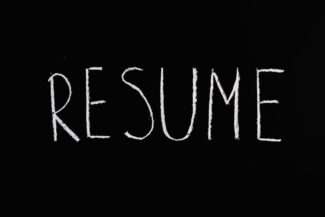Before I became an I/O psychologist, I used to think of failure as an affront to my core identity. To me, a failure was someone who disappointed coworkers, relatives, friends, and the whole community—someone, in short, who failed at life. Back then, and especially in grade school, I thought that a failing grade made me a loser. From that myopic point of view, even a single F could define me forever. It was only as I grew older that I began to realize that my fear of failure limited the scope of my thinking and that, in fact, even the most successful individuals in any given society fail much of the time.
Whenever I begin to draw parallels, I turn to the world of sports. More specifically, the man who comes to mind immediately—and who blew my mind when I first started thinking about harnessing the power of failure—is the quarterback with the record for most interceptions. Possibly the worst thing a quarterback can do is to turn the ball over, either through a fumble or an interception. If someone mentions the man who holds the league record for most interceptions, you might assume that he would be the worst QB of all time. However, the most intercepted QB ever was Green Bay Packer icon, Brett Favre. But instead of being remembered as someone who couldn’t throw his way out of a paper bag, he is famous for some of the most impressive statistics in modern football, a feat that led to his enshrinement in the Hall of Fame. Another sports analogy can be found on the baseball diamond. If you look at the stats of some of the greatest players in the history of the game (Ty Cobb or Ted Williams), you will see that their batting averages—the number of times they reached base by getting a hit divided by the number of times they got a chance at bat—were 366 and 344, respectively. That means that they were unsuccessful at the plate more than 60% of the time.
Well, that only happens in sports, you may be skeptically saying to yourself. But no, some of the most prolific captains of industry are, if measured solely by their track records (win/loss ratio), equally prolific in the art of failure. The first person who comes to mind is Steve Jobs. People often cite the iPhone as one of the most, if not the most, innovative inventions of our lifetime, something that ushered in the era of mobile computing and changed the world. But no, the iPhone wasn’t Apple’s first foray into the mobile industry. Remember the Apple Newton? Probably not. It was a product whose launch fell as flat as that of any product ever could have (except for New Coke, another massive corporate failure that eventually led Coca-Cola to momentous success). Sales were dismal and short-lived. Apple pulled the Newton from shelves only 5 years after development. Although this failure left Apple in a hole when the project was canceled in 1998, it showed the tremendous potential of this kind of computing, a potential that was realized after years of creative work and that eventually led to the iPhone and iPad. Today Apple is the most valuable company in the world, the first in history to hit the 3-trillion-dollar valuation mark, which it did earlier this year. Without this and other failures, Apple, it could be argued, would not be in the enviable position it currently enjoys.
Nevertheless, the question must be asked: Is there an inherent benefit to failure? Yes, there is. Failure has many benefits of which we may not be immediately aware. For one thing, when people are given the opportunity to fail, they will often think beyond what is conventional and may even be able to imagine what is possible. Within this framework, managers should encourage employees to expand their thinking beyond the ordinary and allow themselves to experiment with different processes or new products. By contrast, an organization whose culture is averse to calculated risk-taking and has a low threshold for failure can lead to reductionist thinking among employees, a general feeling of unease, and a lower sense of psychological safety at work. The latter, if low enough, can lead to higher levels of attrition. If people are paralyzed by the fear of making a mistake, they’ll focus on ensuring the perfection of assigned tasks rather than exploring beyond their comfort zone. This fear of failure can be assuaged by a manager who is open to the possibility that not every project will bear fruit immediately. But before going on, I must make an important distinction. ALL FAILURES ARE NOT CREATED EQUAL. The type I’m talking about is an intelligent failure. Failure due to negligence needs to be corrected before it becomes endemic. I’m in favor of failure which is associated with the bold act of trying something new. Trying something new is great if one is taking a calculated risk. Evading risk merely for the sake of not failing holds back innovation, whereas risking it all with reckless abandon can lead to financial ruin. In an excellent article by Rita Gunther McGrath in the Harvard Business Review (which helped me with my research on this topic, including the concept of intelligent failure), the writer emphasizes the importance of defining what would be considered a failure, so you can begin to plan for it and get past it quickly and cheaply if you mitigate it properly. Planning for failure, rather than pretending it doesn’t exist, can help make it part of your company’s culture and a step in the innovative process rather than a poisoned branch not to be touched. This approach aligns with the goal of building a culture based on experimenting, for if we continue to learn from past mistakes, we prevent the worst possible outcome: repeated, systematic failure.
Let’s face it: We’ve all failed at one time or another. We’re lying to ourselves if we say otherwise. Failure is a part of the human condition, after all. Organizations that pride themselves on perfection only instill a sense of psychological unease and tremendous levels of undue stress. It is those organizations and, more importantly, those managers that instill the sense that failure is part of the job and that calculated risk-taking is useful that will enjoy a more inventive workplace. With an environment of envelope-pushing and paradigm-shifting thoughts, an organization might encounter a few Apple Newtons or even a New Coke, but that just means that an iPhone-caliber innovation might very well be right around the corner if explored.
Edited by Mercedes Perez, a Copy Editor at MJH Life Sciences™



